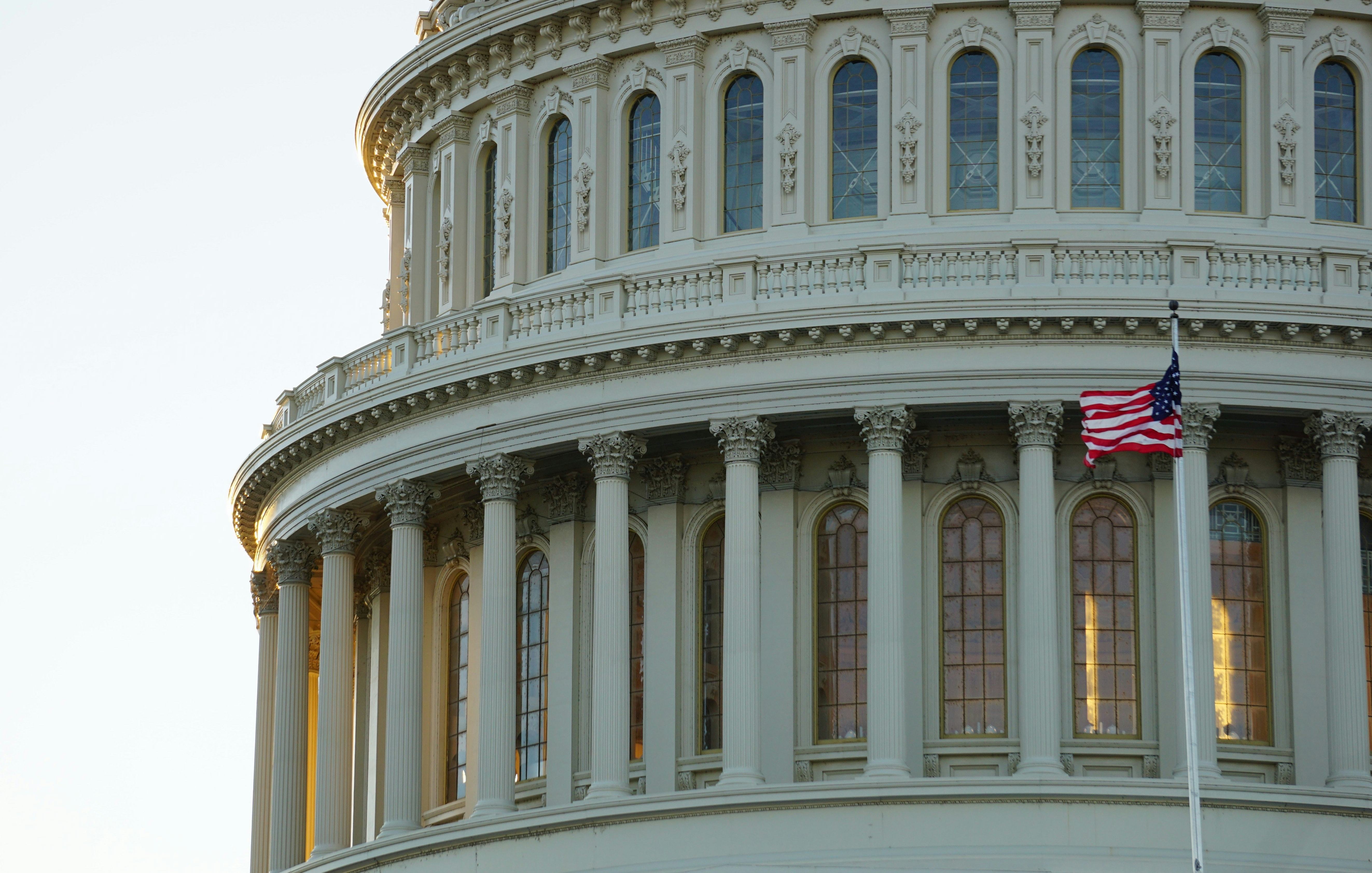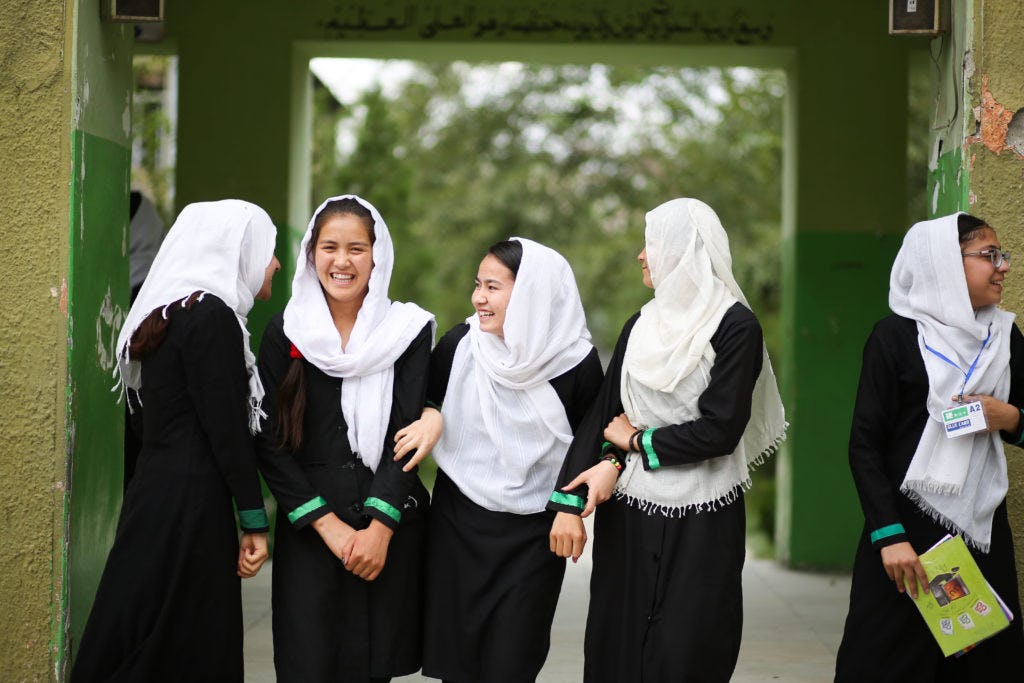American Dependence: Epistemic Trust and the QAnon Conspiracy

The Covid-19 pandemic has made it clear just how much we depend on one another. We count on those around us to take the public health precautions that will curb the spread of the virus; on essential workers to care for our health, to provide us with food, to keep public spaces clean. Spending over a year sequestered in our homes, lacking social interaction, underscore how much we depend on time with friends, conversations with colleagues, and small talk while waiting in line to see life as fulfilling.
Our dependence on others may seem obvious, but it is not always an easy lesson to absorb. Many Americans are taught from an early age that independence is integral to being American. The origin story of our country narrates a dramatic rupture from dependence on a colonizing power to the formation of an independent republic with “liberty and justice for all.” We see these values deployed constantly, from people on Instagram advising their followers to “follow your truth” to more sinister uses: those attacking the Capitol on January 6 appealed to notions of freedom, liberty and independence to justify their violent invasion in response to the (fictional) threat of election fraud.
The insurrectionists clearly failed to practice what they preached. Participating in an angry mob motivated by collective delusion undercuts its own appeals to free thinking and independence. The rise of the QAnon movement and of broader conspiracies regarding election fraud may remind us of the value of independence, but that is only because they themselves show the perils of misplaced dependence.
We all depend on other people for knowledge, but as is evident from our politically polarized society, many people disagree about who proves to be trustworthy sources of knowledge. Followers of “Q,” an Internet poster claiming to be a high-level government official with Q clearance, depend on Q for knowledge. They trust Q to tell them the truth. In followers of QAnon, we can see the danger in misplaced epistemic trust. Heidi Grasswick defines epistemic trust as concerning “one’s willingness to take the word of another––to trust in their testimony, form beliefs on the basis of that testimony, and act in accordance with such beliefs.” She identifies two conditions typically required to trust another person, termed a “testifier,” as a knower: one must decide that “the testifier is competent and sincere,” since “it only makes sense to rely on someone’s testimony if I have reason to think that the person is competent in the area in question––that is, likely to be in possession of the knowledge I am interested in, and sincere––that is, likely to be trying to convey to me what they take to be true beliefs rather than dupe me.” Grasswick emphasizes how social location and power relations influence who we deem trustworthy. In the case of QAnon, Q’s assumed identity of an independent government official convinced many people that he was a competent knower, and his appeals to values of independence and free thinking helped people sympathetic to those values and suspicious of the government to trust Q as sincere. As Grasswick notes, epistemic trust has “an affective and attitudinal dimension” that contributes to whether we trust someone. Further, judging a testifier as sincere depends on one’s confidence that the testifier cares for the agent’s interests. By tapping into supporters’ frustrations regarding economic challenges and government intervention and validating the narratives of White Americans that progress toward equality for non-White Americans and of immigrants constitutes a threat to White Americans’ flourishing, Q demonstrated care for the interests of White Americans who felt overlooked, and thus gained their trust.
Many supporters were predisposed to trust Q because they were introduced to QAnon through Facebook friends and other Internet interlocutors who were seen as sincere and like-minded, and thus trustworthy. While trusting our friends as knowers can often be necessary and strategic, the case of QAnon demonstrates how relationships and social identity can lead people to misjudge the competence of others as knowers and accept untruths. QAnon supporters have not only mistakenly judged Q and its supporters as competent knowers, but they have also ignored the input of friends and family who do not ascribe to QAnon. Many relatives of fervent QAnon supporters express dismay and bewilderment at their parents, siblings, and friends who have embraced conspiracies that depart so dramatically from reality. In response, many supporters of Q accuse their skeptical relatives of accepting the “lies” of the mainstream media, dismissing them as incompetent knowers who have misplaced their own epistemic trust.
The ludicrousness of QAnon theories make it clear that it is the followers of Q that have trusted the wrong knowers. Grasswick distinguishes between responsibly-placed trust, meaning trust granted in cases in which one has good reason to take one’s source as trustworthy” and irresponsible trust, which occurs when one “ignores the reasons right in front of them for thinking that a source is not trustworthy, but trusts anyways.” Why do QAnon supporters trust in Q despite clear indications that Q is not actually trustworthy? The cost of abandoning QAnon motivates many to stick with the movement despite evidence of its fabrication. Extrication from the belief system of QAnon is challenging because it is more than just a provider of knowledge: it offers meaning and community. QAnon supporters may think of themselves as independent, free-thinkers, but the appeal of the movement stems from its sense of community––of being a part of something beyond yourself. QAnon capitalizes on and distorts the human yearning for recognition and community. Its supporters carry emotional attachment to the movement. In it, they feel recognized, seen, and heard. They feel like they can contribute something of value. This sense of dignity that emerges from a collective commitment to shared ideals is a recognizable good, though its expression in QAnon has gone very badly awry.
In QAnon, we see human evolutionary capacities of cooperation and dependence corrupted for violent ends. In theological terms, we call corruption of the good “sin.” The doctrine of original sin has tended to emphasize pride and selfishness of the individual as the original stumbling-block for humanity, but Australian theologian Denis Edwards reminds us that the human person’s fundamental social orientation also bears the mark of original sin. Our cooperative tendencies often lead us to “in-group” collaboration nurtured through the shared hatred of a common enemy. The tendency for human beings to draw boundaries based on various kinds of group identity and to proceed to exclude, dehumanize, and disenfranchise those outside our own groups, constitutes a “fundamental rejection of God.” This tendency threatens to drag human communities toward sin, distorting our relations with those beyond our group even while we may develop positive relationships within our social groups. Many followers of QAnon express fondness for the friends they have gained through the movement––but our sense of community should not have to come at the expense of truth.
When we place trust in another knower, we are recognizing them as a source of truth. Part of our task as moral agents is to exercise our epistemic agency well––to trust well in pursuit of truth. Thus, trusting others as knowledgeable is a moral act. Edwards argues that we as moral agents need free thinking as a “check” on in-group collective bias. Preserving our independence in thought helps us to question constructed biases against those “othered” by the in-group. Of course, we can take this too far, too. Recognizing our inevitable dependence on others for knowledge without abdicating responsibility for epistemic trust suggests that our moral task is to balance between the pitfalls of individual pride and collective bias. Our evolutionary inheritance is both a gift and a curse: as Edwards puts it, “human beings can be open to the Spirit of God in both cooperation and in self-affirmation,” but “both of these also have the potential to become the place of sin.”
The first step toward recognizing the potential and the risk in our self-interested and cooperative tendencies is seeing clearly that human beings are both dependent and independent. Alisdair MacIntyre, drawing on Aristotle, argues that human existence entails dependence from the very beginning––we are “dependent rational animals.” As infants and children, we clearly rely on others to survive, but with the proper education and moral formation, we can develop into “independent practical reasoners.” But our capacity to reason independently does not mean we stop being dependent on others. Throughout our lives, we are vulnerable––prone to accident, misfortune, and error––thus we all always depend on others, just to varying degrees. In order to live well and flourish, says MacIntyre, we need to strive to cultivate the virtues proper to “dependent rational animals,” namely, virtues of “independent rational agency” and virtues of “acknowledged dependence.” Exercising virtues of dependence and independence in our epistemic pursuits can help protect us from the pitfalls of self-interested individualism and collective delusion. This requires us to recognize our responsibilities as agents dependent on others for knowledge. For MacIntyre, this involves individual and collective willingness to interrogate our beliefs, biases, and commitments. Because our knowledge is inevitably dependent and shared between agents, our efforts to investigate our biases and examine our beliefs must be undertaken collectively as well. Moral deliberation beyond in-groups gives us the ground to critique, revise, and reject previously held judgments. Even the practice of reasoning is thus characterized by dependence: we depend on the “friendship and collegiality” of others to help us see our errors in reasoning.
Perhaps you, like me, are thinking, “easier said than done.” It only takes a few minutes scrolling through Twitter threads and Facebook comments to see that our moral deliberation is often miles away from “friendship and collegiality.” It is much easier to foster friendship and community with those who agree with us. Accounts from people who have managed to leave QAnon behind demonstrate that behind the QAnon supporter is a scared person searching for friendship, community and a way to make sense of the world. Those leaving the movement recognize that the form of community QAnon provides is based on fear and on lies, but they retain the belief that connection to others matters. Those in recovery from QAnon have established Reddit forums and support groups to give others the support that they need to leave QAnon behind. One former QAnon believer, Callie Smith, advocates for education around epistemic trust, remarking “We as a society need to start teaching our kids to ask: Where is this information coming from? Can I trust it?” If we can help our communities exercise their epistemic agency well, recognizing how much we depend on those around us, we can correct the false narratives that perpetuate social inequalities and injustices and bring our country closer to achieving “liberty and justice for all.”
Heidi Grasswick, “Understanding Epistemic Trust Injustices and Their Harms,”Royal Institute of Philosophy Supplement84 (2018), 75-76.
Grasswick, “Understanding Epistemic Trust Injustices and Their Harms,” 75-76.
Grasswick, “Understanding Epistemic Trust Injustices and Their Harms,” 74.
Grasswick, “Understanding Epistemic Trust Injustices and Their Harms,” 74.
Grasswick, “Understanding Epistemic Trust Injustices and Their Harms,” 75.
Edwards, Partaking of God, 143.
Edwards, Partaking of God, 144.
Alisdair MacIntyre, Dependent Rational Animals, 5.
Alisdair MacIntyre, Dependent Rational Animals, 5.
Alisdair MacIntyre, Dependent Rational Animals, 9.
Alisdair MacIntyre, Dependent Rational Animals, 96.
"Checked by Reality, Some QAnon Supporters Seek a Way Out," https://www.pbs.org/newshour/nation/checked-by-reality-some-qanon-supporters-seek-a-way-out.
A practicing Catholic from Baltimore, Emma McDonald is a second year doctoral student in Theological Ethics at Boston College, where she studies bioethics and social ethics, focusing specifically on reproductive ethics. She received an M.A. in Religion from Yale Divinity School in 2019, and a B.A. in Religion from Middlebury College in 2016.
Discover more from Emma McDonald.








